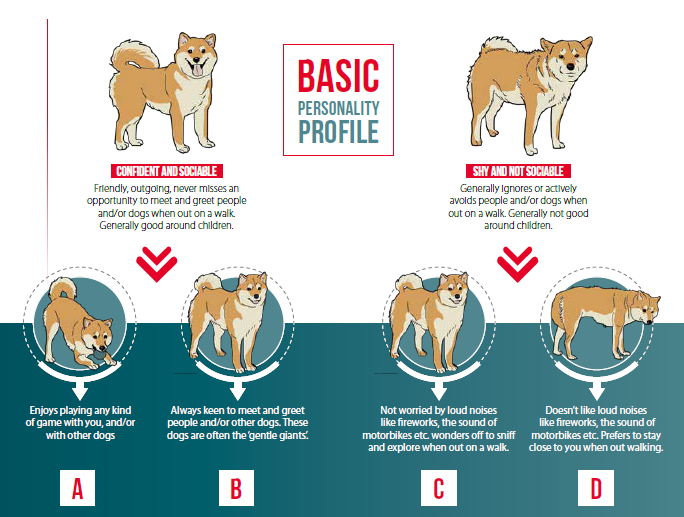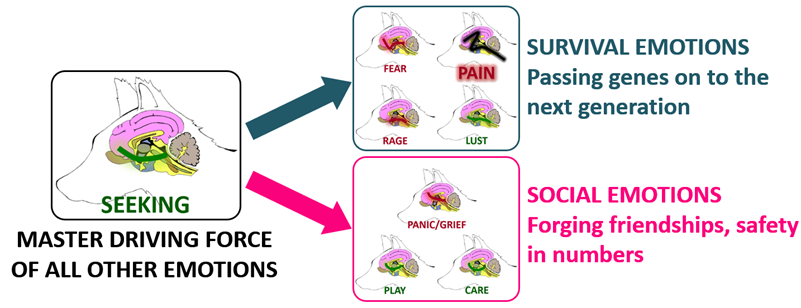Blog | Reading Time 5 minutes
Pet well-being and rehabilitation in the changing world: engaging the master emotion
In this short series of articles, Veterinary Behaviourist Dr. Robert Falconer-Taylor will explain how to prepare your pets to live long and happy lives, whilst being able to manage any current and future changes.
None of us will ever forget the year 2020 when the Coronavirus pandemic changed all our lives in ways that we could never have imagined; strongly affecting our habits, our social life but also our own and our pet’s mental health. At present, many people are working flexible hours or converting a temporary home office into a permanent one. To help adapt to these changes in daily routine and social interaction, this series of articles will be an optimistic guide to help you and your pets live long and happy lives, whilst being able to manage any current and future changes.
For me as a veterinary behaviorist, the most significant lesson the pandemic has taught us is the importance of Chronic Mild Stress (CMS) as a result of unpredictable periods of mild stress over a few weeks. CMS is used in laboratory animals like rats to invoke depressed mood states that model depression in humans. Small things that are irritating such as intermittently wetting their bedding, turning the lights on when they are sleeping, tilting their cage a little, accumulate over time and have an enormous negative impact on the animals’ stress levels and well-being. After just a few weeks, the animals ‘tip over’ into a depressed state and stay there, just like depression in humans. Now put this into the context of a family in lockdown when daily routines break down and the household pets are often caught in the middle of it all with nowhere to go to escape and get some peace.
What makes pets, especially dogs, so vulnerable to CMS?
We have been selectively breeding dogs to fit in well with our human families. The consequence of this is that dogs have essentially lost their sense of independence and form very strong social attachments to their human families. Dogs depend on us emotionally thus when we’re stressed, they are stressed too. There is a great deal of evidence showing how dogs’ physical and mental health is affected by the physical and mental health of their owners, and vice versa. The reason for these similarities can be found deep within our brains.
All mammals have at least 8 well-developed, core emotional systems located deep within the midbrain. The only difference between you and your dog or cat is that, in addition to these 8 core emotional systems, you have better developed inhibitory systems in your cerebral cortex as well. You can find more information about these 8 EMOTIONAL SYSTEMS here.
I like to divide 7 of these emotional systems into the SURVIVAL EMOTIONS (FEAR, RAGE, LUST, and PAIN) and the SOCIAL EMOTIONS (PANIC/GRIEF, PLAY, and CARE) as shown in the diagram above. I call the 8th emotional system (SEEKING) the MASTER EMOTION because it is the motivational force that underpins all the other emotions, as shown in the diagram above. The most obvious impact of the restrictions the pandemic has placed upon us all is how it affects the SEEKING system.
Our SEEKING systems are responsible for all the good feelings we enjoy when we’re having fun, and for the negative feelings when we are not. The brain’s dopamine reward pathways are part of the SEEKING system and we all spend a great deal of our lives finding ways to engage in SEEKING behaviors.
It’s really important to remember that dogs are not motivated by all the same things that motivate us. For example, dogs live in a sensory world of smells, many dogs love to run off and follow the scent and this may not be the case for dogs kept on short leads. When we don’t have opportunities to engage our SEEKING systems, our dopamine levels fall and that makes us feel frustrated, even angry. The loss of a structured routine, due to the pandemic, has led to some dogs ‘forgetting’ their house-trained habits and this has led to punishment by their frustrated owners which only serves to make matters worse because it frightens them, and they become anxious. Fear and anxiety also suppress the SEEKING system, and prolonged periods of suppression eventually lead to depression. Depression is caused by damage and loss of neurons in the brain caused by exposure to high levels of stress hormones like adrenaline and cortisol.
So what can we do about keeping the SEEKING system in peek health now that we have all lost many of the freedoms we enjoyed prior to the pandemic? The answer to this question is easy if we are prepared to be flexible and more inventive about how we engage our pets’ SEEKING systems. Knowing something about our dog’s personality type here can be really helpful. Just like humans, all dogs and cats have their own unique personalities and we can see their personalities shine through in their everyday behavior routines and habits. It’s one of the things that make our pets so loveable.
Determine your dog’s personality and make it easier for you to choose the kinds of activities you know your dog will enjoy and will engage the SEEKING system.

Figure 2: the four dog’s basic personality profiles
*NOTE: that in this series of articles, my main focus will be on dogs, rather than cats. This is because domestic cats are much less dependent on strong social bonds with their human families. Many cat owners prefer cats because of their sense of independence. There are exceptions of course and some cats are highly social. For these cats, the advice I give here for dogs is also applicable.
Published Nov 28, 2023 | Updated Feb 21, 2024
